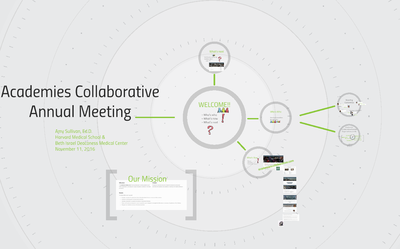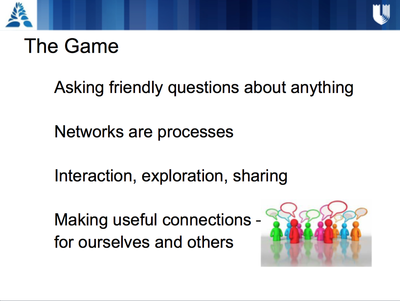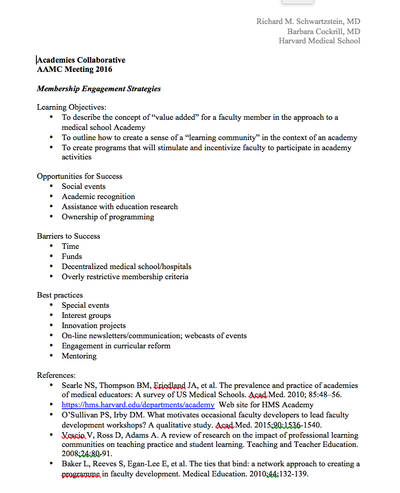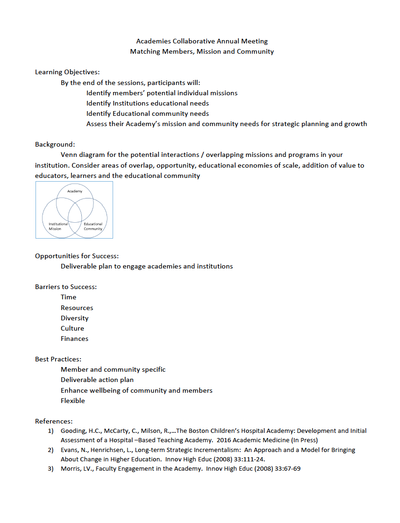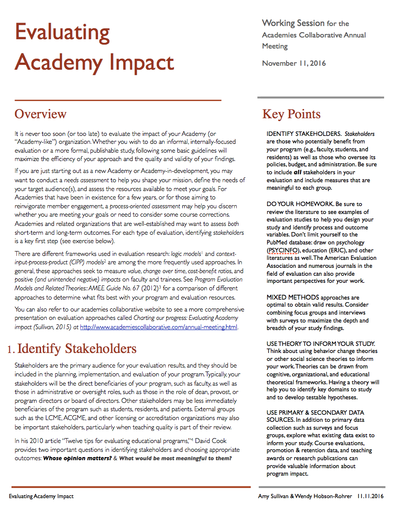In this issue: |
|
2016 Annual Meeting Report
'>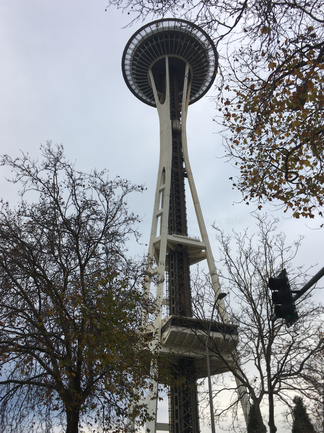 Photo credit: Amy Sullivan 11/2016
Photo credit: Amy Sullivan 11/2016
by Amy Sullivan, The Academy at Harvard Medical School
We had a record number of registrants to our Annual Academies Collaborative (AC) Annual Meeting in Seattle on November 11, 2016. Seventy-two attendees from 54 different institutions signed up for the conference, many from institutions with new or newly forming Academies, even those still in the planning stages. We were delighted to welcome our new and returning members of our collaborative!
As Co-Chair, with Todd Zakrajsec, PhD, of the Steering Committee during 2016, I opened the meeting with an update of the past year’s activities and introduction to the members of the steering committee and new committee leadership. A copy of the presentation is available at the end of this article.
I described two major projects undertaken by the Steering Committee in the past year.
The first is the creation of our new website at academiescollaborative.com. Still in its early stages, the website has already provided a space for other academies or those interested in creating or developing academies to find resources such as templates for membership letters, examples of local grant programs, and a complete list (with links) to all current members of the Academies Collaborative. The website is also home for our new newsletter that will come out at least twice yearly. The newsletter includes updates on the annual meeting, “Academy spotlights” describing individual academies, and volunteer forms for AC members to help each other in a variety of capacities such as serving as external reviewers for other academy membership applications (more on this below). In the coming year, under the leadership of Diana McNeill (Chair) and Stewart Babbott (Co-Chair), many exciting new features and developments are in the works to help our academy partners network, share resources, and get advice and mentoring from other academies. We hope this will be a rich and expanding resource for newly-forming academies, and a vehicle for existing academies to find new ways to engage their members and extend their networks for scholarship and program planning.
The second accomplishment of the AC Steering Committee in the past year, led by Wendy Hobson-Roher and Eva Aagaard (past AC Chairs), was a formal affiliation with the GEA and integration into the AAMC registration process. Our gratitude to the AAMC for handling registration this year and making the AC meeting free for attendees! We continue to evolve as an organization and welcome your suggestions and input as we work toward making the Academies Collaborative a national presence.
We had a record number of registrants to our Annual Academies Collaborative (AC) Annual Meeting in Seattle on November 11, 2016. Seventy-two attendees from 54 different institutions signed up for the conference, many from institutions with new or newly forming Academies, even those still in the planning stages. We were delighted to welcome our new and returning members of our collaborative!
As Co-Chair, with Todd Zakrajsec, PhD, of the Steering Committee during 2016, I opened the meeting with an update of the past year’s activities and introduction to the members of the steering committee and new committee leadership. A copy of the presentation is available at the end of this article.
I described two major projects undertaken by the Steering Committee in the past year.
The first is the creation of our new website at academiescollaborative.com. Still in its early stages, the website has already provided a space for other academies or those interested in creating or developing academies to find resources such as templates for membership letters, examples of local grant programs, and a complete list (with links) to all current members of the Academies Collaborative. The website is also home for our new newsletter that will come out at least twice yearly. The newsletter includes updates on the annual meeting, “Academy spotlights” describing individual academies, and volunteer forms for AC members to help each other in a variety of capacities such as serving as external reviewers for other academy membership applications (more on this below). In the coming year, under the leadership of Diana McNeill (Chair) and Stewart Babbott (Co-Chair), many exciting new features and developments are in the works to help our academy partners network, share resources, and get advice and mentoring from other academies. We hope this will be a rich and expanding resource for newly-forming academies, and a vehicle for existing academies to find new ways to engage their members and extend their networks for scholarship and program planning.
The second accomplishment of the AC Steering Committee in the past year, led by Wendy Hobson-Roher and Eva Aagaard (past AC Chairs), was a formal affiliation with the GEA and integration into the AAMC registration process. Our gratitude to the AAMC for handling registration this year and making the AC meeting free for attendees! We continue to evolve as an organization and welcome your suggestions and input as we work toward making the Academies Collaborative a national presence.
 Pike Place Market, Photo by Amy Sullivan 2016.
Pike Place Market, Photo by Amy Sullivan 2016.
After the update, we began the program with a networking game, led by Diana McNeill, where we conducted several rounds of one-on-one meetings with other attendees at the session (see screenshot below to download the slides). This was a high-energy session in which participants learned from each other, in a “speed dating” format, about initiatives, best practices, and struggles and questions from academies across the country as well as from those hoping to start their own academy. This activity was very well-received, and if you’d like to try this at your home institution, Diana has generously offered to share her slides (see below). This was followed by three small-group sessions run in parallel (handouts available below): Rich Schwartzstein and Barbara Cockrill from the Harvard Medical School (HMS) Academy facilitated discussions on engaging members. Amy Sullivan from HMS and Wendy Hobson-Rohrer from University of Utah School of Medicine led sessions on measuring your Academy’s impact. Stewart Babbott from the University of Virginia and James Lewis from the University of Tennessee Graduate School of Medicine led discussions on matching members, mission, and community. Thanks to all for the work in leading the discussions and for participants for sharing your wisdom and experience!
 Public Market, Seattle. Photo credit: Amy Sullivan 2016.
Public Market, Seattle. Photo credit: Amy Sullivan 2016.
Our data analysis of the meeting evaluation is still in progress, but overall, comments were very positive and participants shared good ideas for future meetings. Some of you described bringing home new ideas and plans for evaluation, for starting new academies, and for forming new collaborations with other institutions with Academies. Participants expressed enthusiasm for the opportunity to network and described an appreciation for “the numerous opportunities to collaborate…we share so many of the same goals and challenges.” Some described “take home” learning such as understanding the “key elements in building a medical scholars program,” and others gained insight into some problems they had encountered in trying to start a new academy, e.g., “[prior] plans failed because we did not have complete buy-in from key stakeholders. Even though we thought we had clearly communicated plans and benefits, we needed to have had involved these higher-level stakeholders at a deeper level. Your workshop brought that home for me.”
We are encouraged by the interest and enthusiasm of our meeting participants, and are grateful for your generosity in sharing your wisdom, experience, challenges, and insights. The ongoing growth in our Academies Collaborative portends well for our combined potential to meaningfully support the continued development and presence of academies in medical and health professions education in the US and beyond. We look forward to continuing these discussions with you through this website and in Boston in November 2017!!
We are encouraged by the interest and enthusiasm of our meeting participants, and are grateful for your generosity in sharing your wisdom, experience, challenges, and insights. The ongoing growth in our Academies Collaborative portends well for our combined potential to meaningfully support the continued development and presence of academies in medical and health professions education in the US and beyond. We look forward to continuing these discussions with you through this website and in Boston in November 2017!!
Presentations and Handouts from the 2016 Annual Meeting
Click on the images below to download a copy of the presentation or handout.
Handouts: evaluating impact, membership engagement strategies, and linking members, mission, & community. Click on images to download handouts.
Academy Spotlight
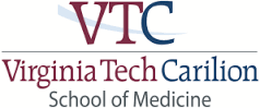
This is a regular feature of our newsletter describing one of Academies Collaborative organizations: a new, newly-forming, or existing Academy or Academy-like organization. Many thanks to Steering Committee Member Shari A. Whicker, EdD, Director, for her description of TEACH (Teaching Excellence Academy for Collaborative Healthcare) at the Virginia Tech Carilion School of Medicine.
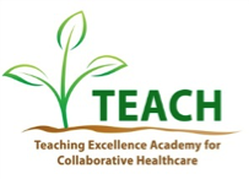
TEACH Virginia Tech Carilion School of Medicine, Carilion Clinic, and Jefferson College of Health Sciences – Roanoke, VA by Shari Wicker
Virginia Tech Carilion School of Medicine is a new medical school (first class graduated in 2014) and our Carilion Clinic Graduate Medical Education (GME) program has grown dramatically in the last several years. Therefore, most of our approximately 750 faculty members were hired primarily to care for patients. While some were excited about the concept of sharing their expertise in the form of teaching, others were uncomfortable with the idea, and most were unsure what this would mean for their current roles and expectations.
The literature on self-efficacy will tell you that “unless people believe that they can produce desired effects by their actions, they have little incentive to act.”1 This statement would suggest that faculty who are less than secure in their ability to teach are less likely to do so effectively. Therefore, we wanted to get our faculty excited about teaching or at the very least more comfortable doing so.
I joined the VTCSOM faculty and the Carilion Clinic Office of Continuing Professional Development (OCPD) in June 2014 and felt compelled to bring the teaching academy concept to life for my new faculty family. I had come from a larger academic medical center at which I was a member of the steering committee charged with developing their academy and enjoyed the process immensely.
As the conceptualization of the academy began to take shape, I quickly realized that the challenges to overcome would not be the same as those my former institution faced and our model would look very different from that of a well-funded academy within an established academic setting. We had the unique advantage and added layer of complexity of collaborating with faculty from across three institutions: Carilion Clinic (CC), Virginia Tech Carilion School of Medicine and Research Institute (VTCSOMRI), and Jefferson College of Health Sciences (JCHS), which held endless potential for interdisciplinary innovation and the challenge of meeting a diverse set of needs. However, the enthusiasm was not lacking at my new home and we soon had gathered our own active, interprofessional, multi-disciplinary steering committee. This initial group of faculty were enthused by the academy concept and thus a community of educators began to take shape.
One of our first steps as a steering committee was to research existing academies across the country to determine what ours would look like. We decided on a multi-level, inclusive, interprofessional, multi-disciplinary structure which would focus on developing our faculty in their roles as educators. This would offer the opportunity for everyone with a teaching role to participate but also provide recognition to varying levels (emerging, skilled, and advanced) of expertise and involvement.
In October, 2015 we held the kick-off for our new teaching academy, TEACH (Teaching Excellence Academy for Collaborative Healthcare). The mission of TEACH is to promote learning excellence at CC, the VTCSOMRI, and JCHS by creating a community of educators and fostering their development as teachers, learners, and education researchers.
During its first year, TEACH was primarily funded by dollars allocated through the OCPD for existing professional development events. The implementation of TEACH provided a consolidated home for the department’s previously established events related to the development of our faculty’s teaching skills and, through the TEACH faculty development subcommittee, resulted in the development and implementation of a variety of additional programs to further enhance abilities in teaching and education scholarship.
As the rollout of the academy approached, we asked for a nominal amount from each of the three major participating institutions (CC, VTCSOMRI, and JCHS) as a symbolic gesture of support. We were granted these initial funds and then were granted double the original amount as we approached our second year based on our first year achievements. Our academy is one of the few programs within our academic medical center that reaches across all three institutions with regards to members and funding.
Since its kick-off, TEACH has welcomed 120 members. These members include faculty (and some professional staff who teach) throughout CC, VTCSOMRI, and JCHS. Regular TEACH events include an annual Education Day, three times annual Education Grand Rounds, bimonthly GME Program Directors (PD), and monthly Health Professions Education (HPE) series.
We are fortunate to have a cadre of talented internal faculty who are eager to help develop the teaching skills of their colleagues. These regularly lead our HPE and PD which tend to draw crowds of between 15 (PD) and 30 (HPE). For our larger, less frequent conferences (Education Day and Education Grand Rounds), we invite nationally-recognized experts to present on edgy, thought-provoking, and practical topics of interest to those who teach at all levels. Sessions are typically repeated three times (7:00 am, 12 noon, and 5:30 pm) to maximize our faculty’s abilities to participate. These conferences have drawn around 140 participants per event. We encourage in-person attendance if at all possible for all of our sessions, but recognize the value of alternative options for when it isn’t. Therefore, we video-record all sessions (provided speaker permission) and post them on our website along with session materials and PowerPoint presentations (when applicable).
Thorough needs assessments have been conducted to design each of the TEACH series. It included review of Liaison Committee on Medical Education (LCME) and Accreditation Council for Graduate Medical Education (ACGME) standards and requirements, Clinical Learning Environment Review (CLER) visit results, and bi-annual faculty survey responses.
Through an active steering committee and eight subcommittees, TEACH has made many early strides at accomplishing its mission. In addition to our regular faculty development sessions, we have thus far held 3 teaching-related journal club sessions with 12-15 participants at each meeting. We are currently working on the development of a formal teacher mentorship program through which both novice and more experienced faculty can develop their skills as educators. Our Technology & Innovations subcommittee has created an active website and an e-newsletter to represent our academy and provide ongoing updates and resources for our faculty. We currently offer teaching observerships for members who are interested in more expert observation, feedback, and/or consultations on their teaching skills. In the spring, TEACH will make a call for four teaching award nominations. We have had a busy year, but TEACH is committed to growing in ways that will help us to meet the evolving needs of our faculty.
Please visit medicine.vtc.vt.edu/teach to learn more about our academy!
Reference 1. Bandura, A. (1997a). Self-efficacy: The exercise of control. New York: Freeman.

